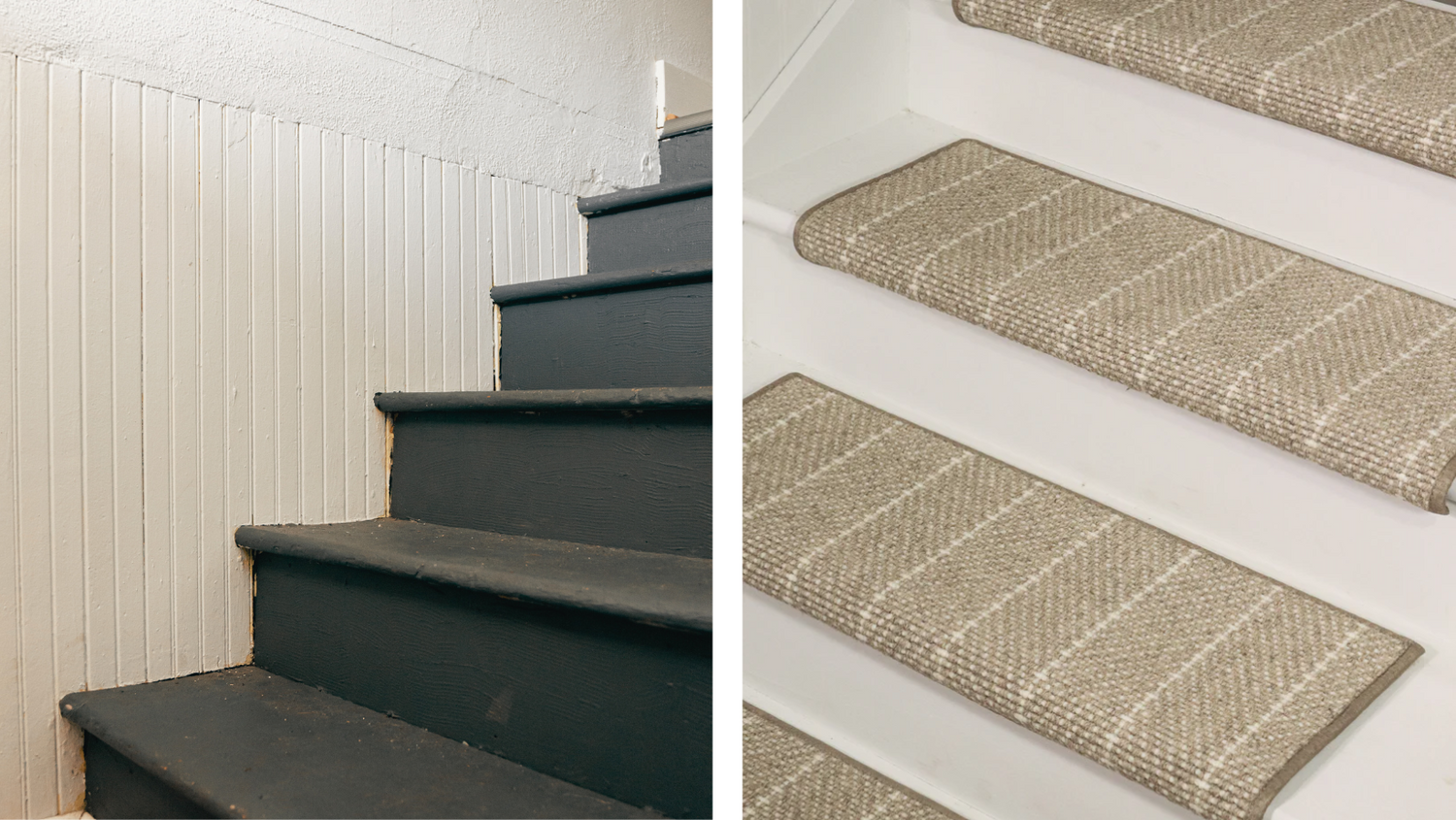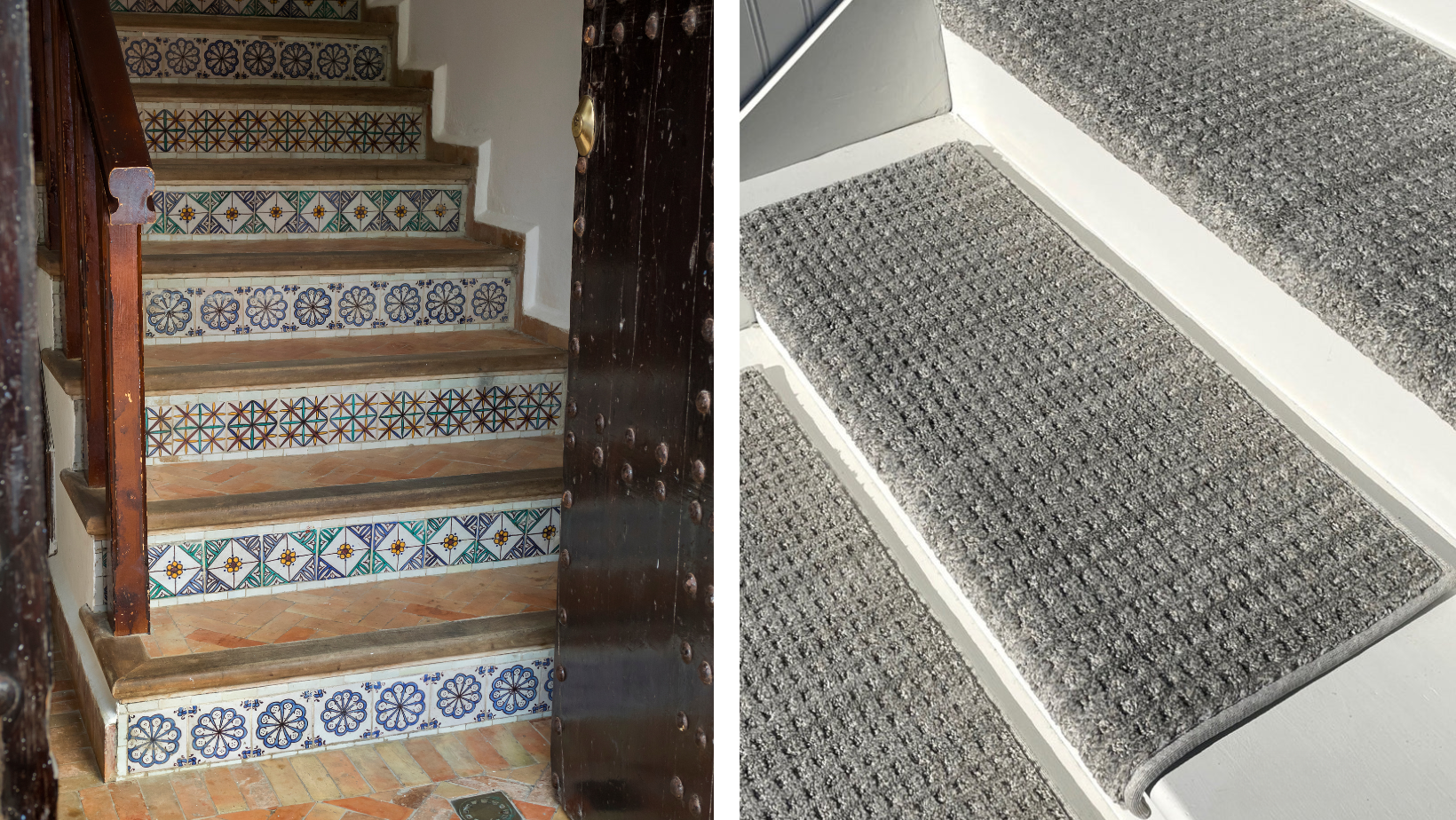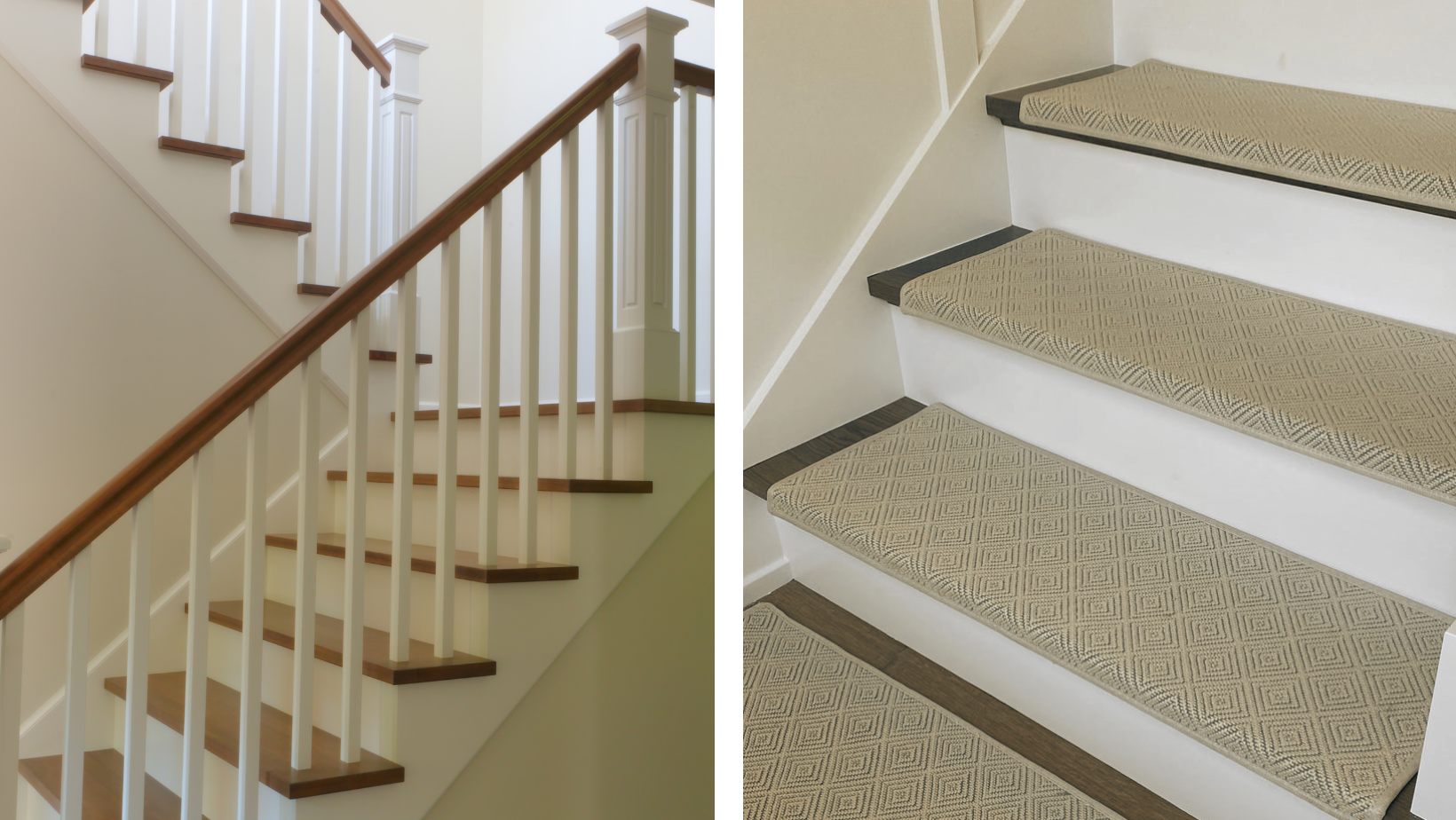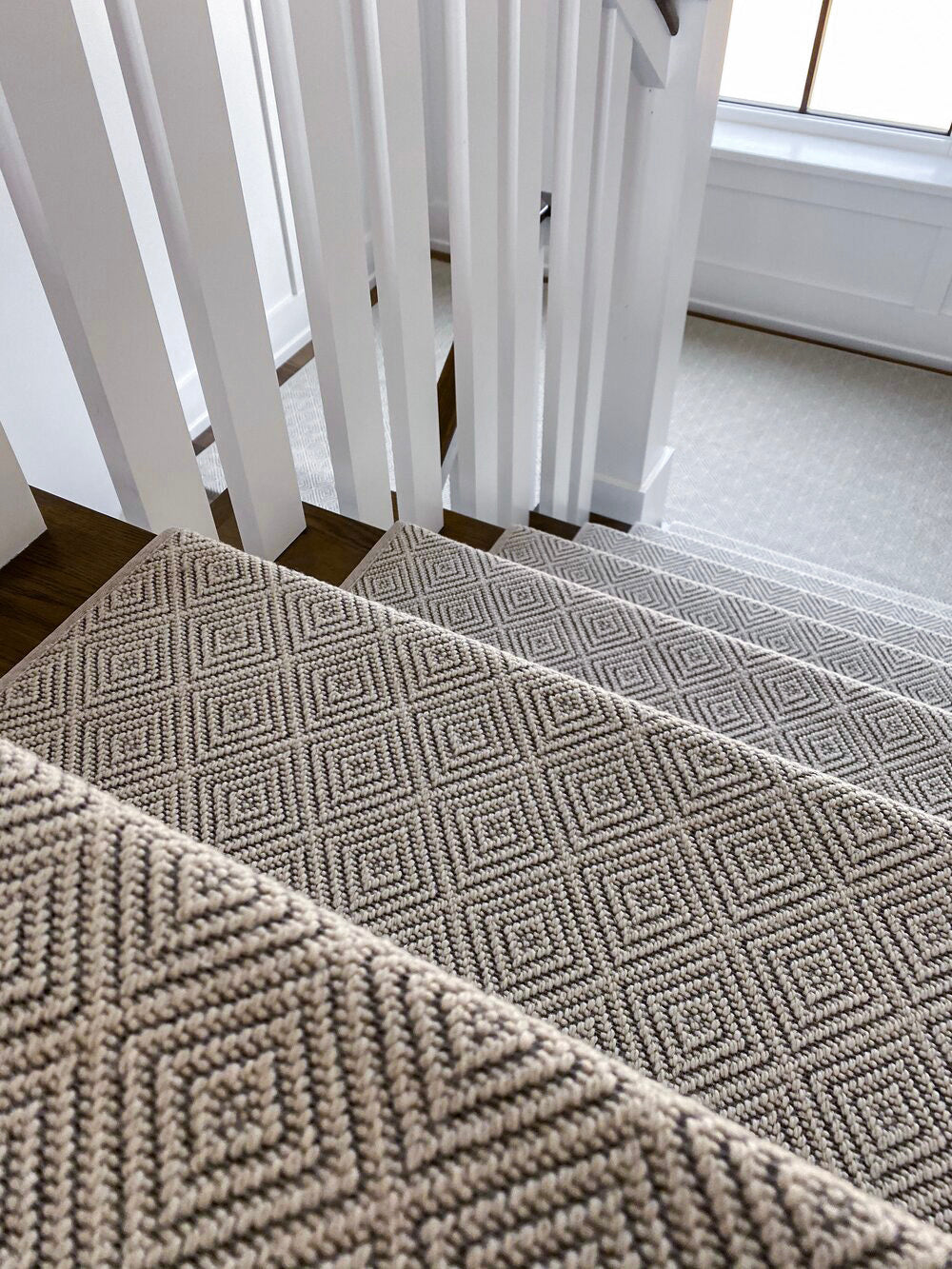If you're looking for amazing basement stairs before and after installing carpet stair treads, you're in the right place. Explore the common problems that can arise with bare basement stairs and the numerous benefits of installing carpet stair treads for a safer and more stylish staircase.
Before:
-
slippery surface
-
Noise and Echo
-
Lack of aesthetic appeal
After:
-
Enhanced safety
-
Noise reduction
-
Improved aesthetic
The Common Problems with Bare Basement Stairs
Basement stairs are often overlooked when it comes to home improvement projects. However, bare basement stairs can present several common problems that can affect both the safety and aesthetics of your home.
Slippery Surface
One of the main issues with bare basement stairs is the slippery surface. Without any traction or grip, these stairs can become hazardous, especially in damp or humid conditions. This can pose a significant risk of slipping and falling, especially for children and elderly family members.
Noise and Echo
Another problem with bare basement stairs is the noise and echo they produce. The hard surface of the stairs can create a lot of noise when walking up and down, which can be disruptive to the rest of the household. The echo can also make the basement feel less inviting and cozy.
Lack of Aesthetic Appeal
Bare basement stairs can also lack aesthetic appeal. They may appear unfinished or utilitarian, which can detract from the overall design of your basement. Adding a touch of style and color to the stairs can greatly enhance the visual appeal of the space.
The Benefits of Installing Carpet Stair Treads
To address these common problems, many homeowners choose to install carpet stair treads. The benefits of doing so are numerous and can greatly improve the safety and aesthetics of your basement carpet stairs before and after.
Enhanced Safety
One of the primary benefits of installing carpet stair treads is the enhanced safety they provide. The added traction and grip can significantly reduce the risk of slipping and falling, making the stairs much safer for everyone in the household.
Noise Reduction
Carpet stair treads also help to reduce the noise and echo produced by bare stairs. The soft surface of the carpet absorbs sound, making the staircase quieter and more pleasant to use. This can be especially beneficial if your basement is used as a living or entertainment space.
Improved Aesthetic
In addition to the practical benefits, carpet stair treads can also improve the overall aesthetic of your basement staircase. They come in a wide variety of colors and designs, allowing you to add a pop of color or a stylish accent to the space. This can help tie the staircase into the rest of your basement design plan.
Choosing the Right Carpet Stair Treads
When it comes to choosing carpet stair treads for your basement staircase, there are several factors to consider. Factors will be different if changing spiral stairs to normal stairs before and after.
Material Options
Carpet stair treads are available in a range of materials, including wool, nylon, and polypropylene. Each material has its own set of benefits and considerations, so it's important to choose one that suits your specific needs and lifestyle.
Style and Design
Consider the style and design of the carpet stair treads to ensure they complement the overall aesthetic of your basement. Whether you want a bold accent color or a subtle, neutral tone, there are plenty of options to choose from.
Sizing and Installation
It's crucial to measure your stairs accurately to ensure the treads fit properly. Additionally, consider the installation method, whether you prefer adhesive treads or those that can be secured with carpet tacks or staples.
Installing Carpet Stair Treads
Once you've chosen the right carpet stair treads for your basement staircase, it's time to install them.
Preparing the Stairs
Before installation, make sure the stairs are clean and free of any debris. If necessary, sand down any rough patches or protruding nails to create a smooth surface for the treads.
Installing the Treads
Carefully position each tread on the stairs, ensuring they are centered and aligned properly. If using adhesive treads, follow the manufacturer's instructions for application. If using tacks or staples, secure the treads in place evenly and securely.
Securing the Treads
After the treads are in place, double-check that they are firmly secured to the stairs. Test each tread to ensure they can support weight without slipping or shifting.
Before and After
After installing carpet stair treads, you'll notice a significant transformation in your basement staircase.
Visual Comparison
The addition of carpet stair treads can completely change the look and feel of the stairs. Whether you opt for a bold color or a subtle pattern, the treads can add a touch of style and personality to the space.
Safety and Comfort Comparison
With the enhanced traction and grip provided by the treads, the stairs are much safer and more comfortable to use. This is especially important for households with children, elderly individuals, or pets.
Aesthetic and Acoustic Comparison
The noise reduction and improved aesthetic of the carpet stair treads can make the basement staircase a more inviting and enjoyable part of your home. The soft surface of the treads absorbs sound, creating a quieter and cozier atmosphere in the basement.
Conclusion
Installing carpet stair treads can make a significant difference in the safety and aesthetics of your basement staircase. By addressing common problems and providing numerous benefits, carpet stair treads are a practical and stylish addition to any home. If you're considering this project, be sure to explore the various options available and choose treads that best suit your needs and design preferences. With the right choice and proper installation, you'll absolutely love the transformation of your basement stairs before and after installing carpet stair treads.




